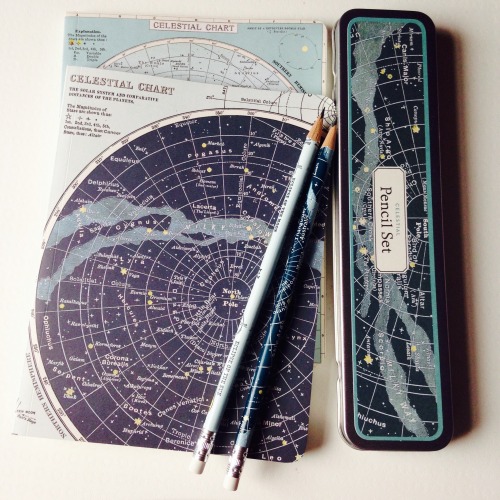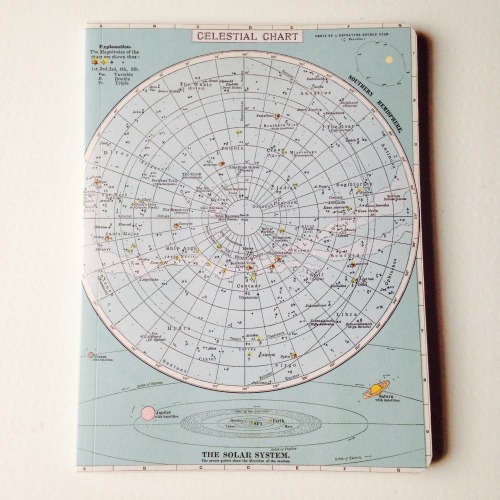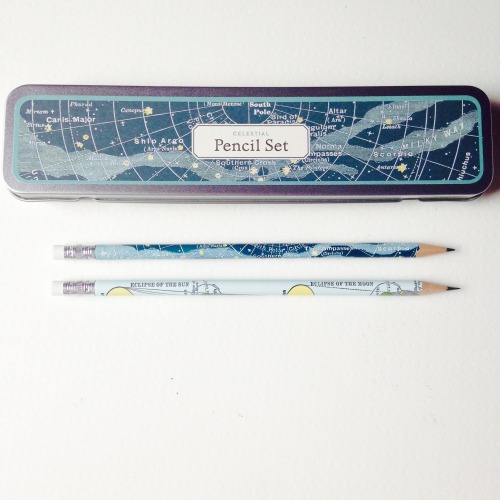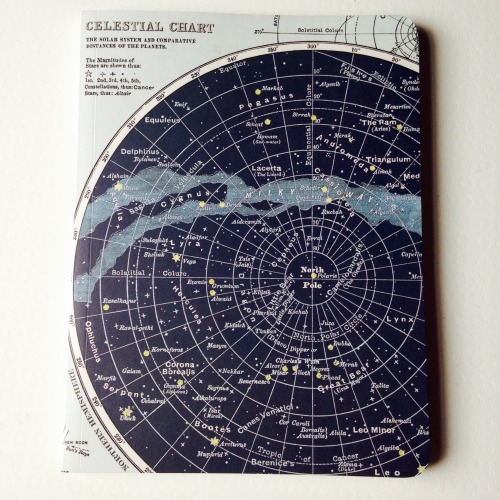From A Few Days Ago; Stu(dying) For My Abnormal Psych Final Tomorrow! I’m Gonna Miss This Class | Ig:


from a few days ago; stu(dying) for my abnormal psych final tomorrow! I’m gonna miss this class | ig: coffeesforstudiers
More Posts from Swirlspill-study and Others
If you spend a lot of time on your laptop for work, study, etc., you should definitely check out this app called Noizio. It provides ambient background sounds that help calm you or keep you focused. You can even make and save your own combination of sounds. My personal favourite is winter wind + wind chimes + sea waves. Each sound’s volume can be adjusted individually as well!
Medical Student Resources 101
I’ve been thinking about this post for quite a while now, and I have finally decided how I want to approach it. If you have any suggestions, please comment or message me! So, when I started medical school 18 months ago all I had available to me was a crazy long list of textbooks recommended by the university. It has been an uphill battle figuring out what textbooks are helpful and which are less than helpful. So this is my masterpost of resources I’ve used for medical school thus far, organised by systems!
Basics
You’ll need a good anatomy atlas, physiology text and pathophysiology book as a bare minimum. Most universities also guide you towards a clinical skills book of some sort.
Anatomy:
Rohen and Yokochi “Color Atlas of Anatomy: A Photographic Study of the Human Body”
I used an old version of this book, and it was amazing for our human dissection block, I would strongly recommend it.
Physiology:
Boron “Medical Physiology”
Guyton and Hall “Textbook of Medical Physiology”
I used a combination of these two, Boron can be very heavy, so I only used it for topics I had a really good grasp of and wanted to know more about. I would recommend Guyton over Boron if you can only get one.
Pathophysiology:
Robbins and Cotran “Pathologic Basis of Disease”
This is one of the best books ever written. I cannot recommend it highly enough.
Clinical and Practical Skills:
Talley and O’Connor “Clinical Examination”
This was recommended by my university. It is a good textbook, however I’ve recently discovered:
Thomas and Monaghan “Oxford Handbook of Clinical Examination and Practical Skills”
and I personally prefer this, but it is much more concise, so Talley is great for all the background information.
Cardiovascular
Lilly “Pathophysiology of Heart Disease”
This textbook is fantastic, very easy to read and covered all of our cardiovascular block thoroughly.
Respiratory
West “Respiratory Physiology: The Essentials”
This book can be a bit hit and miss. I really didn’t like respiratory physiology, so I struggled a bit with this one, I used a combination of Guyton and Hall, and West. For pathophysiology you can’t go wrong with Robbins and Cotran.
Genitourinary
I didn’t use a specialised book for this block. For physiology I used Boron, which was insanely hard as a first year student. I also used Guyton and Hall at the end of the block, which was much better. So I’d definitely recommend Guyton and Hall for physiology and Robbins and Cotran for pathophysiology.
Gastrointestinal
Chew “Crash Course Gastrointestinal System 3e”
I really liked this book for this book, I thought it covered the hepatic system very well, overall it was very easy to read and understand. This book and Guyton and Hall if you wanted to supplement it would be great. As always, Robbins and Cotran for indepth pathophysiology.
Endocrine and Reproductive
Porterfield and White “Endocrine Physiology”
This was one of my favourite blocks! The university recommended Greenspan’s “Basic and Clinical Endocrinology”, which for what we needed was probably too much. I found a fantastic little orange book at the library, which I will need to go get the name of, so keep an eye on this if you need a good endocrinology book. UPDATE: little orange book found!
Psychiatry
Kaplan and Saddock’s “Synopsis of Psychiatry”
This is actually a really great book for any psychiatry you might do. We only used it for four weeks, but I’d definitely recommend hiring a copy if you can!
Neurology and Neuroanatomy
Yogarajah “Crash Course Neurology, 4e”
Fix “BRS Neuroanatomy”
Young “Basic Clinical Neuroscience”
This has been an incredibly hard block to find a good text for, at a reasonable price. These two have been very helpful, and I find them easy to read. Only time will tell if it has been enough to pass! Update: Young’s book is also excellent!
Musculoskeletal
Jenkins “Hollinshead’s Functional Anatomy of the Limbs and Back”
This is the most amazing textbook for any block of all time ever. Literally. It is so good! I’ve used a combination of this book, and:
Moore and Dalley’s “Clinically Oriented Anatomy”
for our musculoskeletal block. It’s been absolutely fantastic. I’ve enjoyed it so much! I would also recommend investing in some quality flashcards. I have:
Hansen “Netter’s Anatomy Flash Cards”
Which have been great, another really great resource has been WinkingSkull.com, which you do have to pay for, but it is helpful!
Other
So, there are a few other resources I’ve used that have been very helpful. Mostly online databases and websites but I thought it would be handy to have them. Many (most?) universities have subscriptions to them so try your university library website!
UpToDate: www.UpToDate.com
Everything you ever needed about anything in medicine
Best Practice: www.bestpractice.bmj.com
This is my favourite resource. Ever. It goes through signs, symptoms, risk factors, diagnostics, differentials, everything. It is a small slice of heaven in medical school.
Lancet Review Articles
There were a really great series on Immunology in The Lancet, I would strongly recommend trying to find them for a concise overview of immunology
Life In The Fast Lane: www.lifeinthefastlane.com
Great series on ECGs!
Radiopedia: www.radiopaedia.org
These guys are great for understanding what you’re actually supposed to be seeing on any radiological film. I’ve been using it a lot for musculoskeletal, looking at Le Fort fractures, etc.
Toronto Notes
So I just borrowed a friend’s copy of Toronto, but I believe there may be online access. Maybe an online version. It’s great for an overview and is a little more clinically focused. I really liked it for gastrointestinal, psychiatry and neurology.
Anatomy Zone
There’s a website and a YouTube channel with great tutorials and information for anatomy, particularly musculoskeletal. I’ve found it immensely helpful whilst studying for this block!
I know I’ve probably missed a few things, I’ll add them as I think of them but I hope this helps a few pre-clinical medical students out there! If it’s helpful I’ll keep you posted as I move into my clinical years on new texts and resources I find helpful!
do you have any learning materials for learning chinese?
Are you learning Mandarin or Cantonese or another Chinese dialect/language cuz I’m not sure which resources you want? I can give you some resources for both Canto and Mandarin but I don’t have any resources for other Chinese dialects / Chinese languages
Mandarin Resources
PDF’s (it contains PDF files to learn Mandarine.)
Mandarin Resources / Rec Post
Free Resources For Learning Mandarin Chinese
Chinese Grammar Wiki
yoyochinese
chinesehulu
memrise
Tips on learning Mandarin Tones (Check this post for tips on learning Mandarin Tones. I learnt Chinese tone naturally so I don’t have anything to recommend so I just link you this blog post.)
Chinese Pronouns
Youtube
Learn Chinese Now
Lenguin.com Language Lessons
Vocabulary Videos
How to Speak With Numbers in (Mandarin) Chinese (In the West, we use acronyms for online chatting and texting such as BRB and LOL. For the Chinese, we use numbers! This video will help you learn how to speak with numbers in Chinese.)
Chinese Family Tree
11 Crucial Chinese Phrases
How to Curse in Mandarin Chinese
Textbooks
Integrated Chinese 中文听说读写
Links to watch Chinese (Mandarin) Dramas
DramaFever
Viki
Cantonese Resources
My first language is Cantonese so I’m not learning it from any materials but I’ve found a few site that looks quite interesting and looked quite helpful that you could try.
PDF’s (it contains PDF files to learn Cantonese.)
Apps Rec
Teach Yourself Cantonese
Cantonese Dictionaries
Cantonese Grammar
Cantonese Pronouns
Youtube
Cantonese Tone
iCANTONESE
Cantonese Bad Swear Words
Vocabulary Videos
How to Speak with Numbers in Chinese - Cantonese Version
Chinese Family Tree - Cantonese Version
CarlosDouh (This is helpful to learn some slang and how and when they are used in Hong Kong.)Cantonese Slang (Another clip with a list of some commonly used Cantonese slang)
Sites to watch Hong Kong / TVB Dramas
newasiantv (with subs)
icdrama (without subs)
Watching dramas/films/shows will definitely help you learn and improve your Cantonese.
Chinese Reading & Writing / Character Resources
Chineasy (They also have books you can buy on amazon or on here)
3000hanzi (A site dedicated to help people learn to read Chinese)
Chinese Poems
To improve or learn Chinese characters, try to watch some Chinese dramas and/or shows with Chinese subtitles, it will help you learn and improve your Chinese reading.
Some Info about Chinese Languages / Culture
Cantonese Vs Mandarin (This video tells you the difference between the two.) There is another link you can try here)
Chinese Culture Topic Videos (You should check out their channel, they talk about many other things about Chinese Culture / China.)
The Chen Dynasty
Taiwan vs. Mainland Mandarin Chinese
Blogs / Blog Posts
language-obsession
Chinese resources
the thesis progress journal
it’s all based on louise desalvo’s concept of a process journal for writers, from her book ‘the art of slow writing’ which i read way back in 2014 but has stayed with me all this time. she based that concept on sue grafton’s journal, which “stands as a record of the conversation she has with herself about the work in progress.” desalvo talks about her own process journal : “to plan a project, list books i want to read, list subjects i want to write about, capture insight about my work in progress, discuss my relationship to my work (what’s working and what’s not, whether i need to make changes to my writing schedule, how i’m feeling about the work)”
her view of the concept is so interesting and can easily be applied to grad school : “keeping a process journal helps us understand that our writing is important work. we value it enough to plan, reflect, and evaluate our work. a process journal is an invaluable record of our work patterns, our feelings about our work, our responses to ourselves as writers, and our strategies for dealing with difficulties and challenges.”
she says, and i quote : “our progress journals are where we engage in the nonjudgmental, reflective witnessing of our work. here, we work at defining ourselves as active, engaged, responsible, patient writers.” and like ???? yes, go off louise!
every week i make an entry with my three to five priorities. since i currently still have seminars, my entire week cannot be dedicated to my thesis, so these priorities allow me to really focus on specific things. they can be bigger or smaller depending on the amount of time i have to work on my thesis.
every day i work on my thesis, i make an entry. i try to answer two questions : “what did i do that day to make progress on my thesis?” as well as “how am i feeling & what i can do to feel better?” i also choose two to five specific tasks to achieve that day and write about the progress. for example, if my task is reading an article, i’ll write it down, check the box once i do it and write a summary of the “experience” (how was the article, was it useful for my research, should i read more of that author’s work, etc.) that way, i can look back at previous tasks, know what happened and learn from it.
i also use the journal almost like a bullet journal (the OG kind) with ongoing lists of important things. of course, there are some to do lists here and there (even though i prefer having my comprehensive task list on todoist), but it’s mostly things like
names of people who have helped me so i can thank them in my thesis
call numbers of books to borrow or archives to consult
research hypotheses
things to look for in the archives i consult
questions to ask my professor/advisor/archivist/etc.
issues that need to be fixed in my thesis
books/articles to read
additional things to research
i also use it as a regular notebooks for all things thesis. one of my seminars this semester is a methodology course, so i take notes in my journal as reference. i also sometimes will write some reading notes if i don’t have my computer on me, such as key quotes or arguments. also, all of my notes from meetings/calls/emails with my advisor are put in the journal, as well as a any pertinent meeting notes (with an archivist, fellow student, my mom, etc.) lastly, sometimes it just becomes a catch all for brainstorm sessions and random thoughts.
for me, this thesis progress journal is the best way to take a step back from the actual work and reflect on what i’m doing, good or bad, and what i can do to make things better, but most importantly, it allows me to understand my progress.
Hey you wonderful person! I just started studying bio and was wondering if you had any advice on thinking like a biologist?
hey you wonderful person as well and budding biologist!
Thinking like a biologist.. hmmm! never been asked something like this before, so this is great for me to think about it too! here are 7 “rules of biology” if you may, that i personally find truth in. it’s definitely not complete, and maybe not all 100% correct, since i am just one person. but it’s what i believe:
nothing in biology is absolute. this field is about as lawless as lawlessnes gets. for example: “smoking causes lung cancer”–yes, in some cases, but not everyone who smokes gets lung cancer, and not everyone who gets lung cancer smokes. because individuality exists in biology, it makes things complicated. that’s not to say there’s no rhyme or reason; it’s just that nothing happens in a vacuum/by itself so the answer to a lot things is: “well, it depends.” that’s why you’ll see a lot of words like “may”, “can”, “sometimes”, and “suggests” in biology.
science is a tool created by humans to understand nature. thus, science can never be 100% free from human bias and error. we try to be as unbiased and close to the truth as we can by using things like experimental controls and large sample sizes, but at the end of the day, sometimes science can still be flawed. and that’s ok! but we need to be able to edit past discoveries to what we know now. (and going off of that, I really don’t like that popular quote by neil degrasse tyson: “science is true whether you believe it or not”. that’s not accurate. what’s accurate is “NATURE is true” because humans doing science can be very very flawed)
going off of that, question everything. don’t accept something is true until the evidence is sound (ie. good study design, no false interpretation of data, reputable sources, etc). even if someone well respected in the field says something, doesn’t always mean it’s true. be your own advocate in finding out the facts.
sometimes the “outlier” can teach us the most. take cancer, for example. it’s definitely a non-normal state of health and being, but from it we learned so much about normal cellular and organ function. or how we’ve been able to discover some drug metabolism gene variations in certain populations because they didn’t respond well to a treatment during a clinical trial. a lot of knowledge in biology can come from studying what goes wrong or contrary to what we expected.
your personal ethics may be challenged at times. this is particularly applicable for things like: science vs religion, research on animal models, who and what gets funding priority (eg. a cancer drug with the potential for pharma companies to make billions vs a tropical disease that primarily affects poor communities?), the high cost of pharmaceuticals/health-care in general, open-access knowledge vs getting scooped, is it right to sequence every individual’s genome, etc. you will truly need to know yourself, especially your beliefs and your limits, to navigate these situations.
everything is connected, sometimes extending beyond the realm of biology. this is related to what can happen in a given situation is always “it depends”. everything affects everything; we–every living unit from microorganisms to cities–are all connected in some way. for example, recent research has shown certain populations of bacteria in our guts can alter our mental health, and it’s easy to see how that can change our day-to-day-life, which in turn can affect society in general.
never cease to be fascinated. the biology of nature is amazing, everything from the smallest virus to the largest ecosystem. no matter how jaded you may become later in your career, never let go of that childlike curiosity that first brought you to the field.
good luck and have fun on your adventure as a biologist :) and i’m always here if you need anything!
DEAR RESEARCHERS OF TUMBLR
You know what’s awesome? Research. You know what’s not awesome? Not being able to get access to research because it’s stuck behind a paywall and you don’t belong to an institution/your institution doesn’t subscribe to that particular journal.
FEAR NOT.
Here is a list of free, open access materials on a variety of subjects. Feel free to add if you like!
GO FORTH AND LEARN SHIT, MY FRIENDS.
Directory of Open Access Journals- A compendium of over 9000 journals from 133 countries, multilingual and multidisciplinary.
Directory of Open Access Books- Like the above, but for ebooks. Also multidisciplinary.
Ubiquity Press- Journals covering archaeology, comics scholarship, museum studies, psychology, history, international development, and more. Also publishes open access ebooks on a wide variety of subjects.
Europeana- Digital library about the history and culture of Europe.
Digital Public Library of America- American history, culture, economics, SO MUCH AMERICA.
Internet Archive- In addition to books, they have music and videos, too. Free! And legal! They also have the Wayback Machine, which lets you see webpages as they looked at a particular time.
College and Research Libraries- Library science and information studies. Because that’s what I do.
Library of Congress Digital Collections- American history and culture, historic newspapers, sound recordings, photographs, and a ton of other neat stuff.
LSE Digital Library- London history, women’s history.
Wiley Open Access- Science things! Neurology, medicine, chemistry, ecology, engineering, food science, biology, psychology, veterinary medicine.
SpringerOpen- Mainly STEM journals, looooong list.
Elsevier Open Access- Elsevier’s kind of the devil but you might as well take advantage of this. Mainly STEM, also a linguistics journal and a medical journal in Spanish.
Tumblr Resources to Get You Through the School Year!
Hi guys!! Thank you all so much for your support!!! Happy 250 (EDIT: I SPENT A DAY ON THIS AND NOW IM PAST 300) and hope you all have a great start to the month! The community is more welcoming with all of you - I haven’t faced negativity from anyone at all. None of these are my posts - but they’ve helped me out a lot. With that said - let’s get started:
For bujos/planners:
This is one of my side blogs, and has tons of inspiration for weekly and monthly spreads, as well as a few aesthetic ideas and how to start one. I update this constantly.
How to start a studyblr - Studyblrs with creative fields
Lighting (for photos)
Study spreads
Planning your month
Printables (the same as some used down there but in a different category):
Weekly printable
To - do printable
Cornell Notes printable
Back to school printables
Daily Planner @theorganisedstudent
Weekly Planner II @theorganisedstudent
Essay Planner @theorganisedstudent
Assignment Planner @theorganisedstudent
Assignment Tracker
Novel Notes
Plot Diagrams
Correction Sheets
Grid & lined paper
Weekly schedule for studying
Printables masterpost
Exam printable & how to use it
2018 Calender set (by my QUEEN @emmastudies)
For students:
Exams & Studying:
Exam revision guide
How to beat different types of procrastination
How to deal with a crappy teacher (this has to do with studying ig)
Study tips!! (its a masterpost)
Exam Printable & How to Use it
Exam & Homework tips
Coping with hell i mean exams i mean hell
A cool studying outline to try
This is my favorite thing and it’s when to use certain remembering techniques
Correction Sheets
Memorization tips for different learners
Weekly study schedule
More sites to use in normal studying routines
How to study smarter and not harder
Study smarter II
Exam printable & how to use it
Self discipline
Study methods
Hoe tips for school and studying
Studying masterpoint
Tips and tricks to studying
Study tip - so easy
How to stay organized to study
Note - Taking:
Lecture notes
How i set up flash cards (these are nice to study from but be determined to finish setting them up)
Nifty highlighting idea (this post is so old)
Highlighting idea that i actually use
How to take Cornell Notes
Cornell style notes printable (gridded)
Notebook paper (grid & lined)
Tips for pretty notes!!
How to take notes
Notes for different classes
Life, man & general school stuff:
Back - to -school guide
Things I learned as a college freshman
Get ORGANIZED
Textbooks are expensive so here’s some free ones…
Tips for working students that sound extra but may work for u ily don’t overwork urselves
Masterpost for motivation and stuff
Get ur life together again bc haha i stay organized for like a day anyway
School supplies that u should have just to stay minimal
Grad school tips
Organization masterpost
Productive afterschool routine
30 websites to kill boredom
Back to school masterpost
Get confident in presentations
Overcome procrastination
Succeeding in school masterpost
For bad days
For bad days II
A GOOD MASTERPOST for getting ur life together
General school tips
Free online courses
GOOD POWERPOINT TIPS
Sites to learns stuff
More learning stuff sites
Dealing with a trashy class
Study resources masterpost
Summer Productivity
Summer life tips
PLEASE READ THIS THIS IS SUCH AN IMPORTANT MASTERPOST
Honest guide to college
University tips
SCHOOL MINDSET
What to do on Sundays
Back to school masterpost
Useful things for going back to school
How to clean your house
Cute self care tips!
More self care tips
Plant care tips!
English:
A handy list of words to fit into ur essays
How to write an article like a journalist
Words to replace over-used words
ESSAY STRUCTURE IDEA this is in bold so u losers don’t miss this bc it’s not just for English u nerds
Get gucci while reading and be an active reader
Get gud reading them academic articles amigo
Words to replace “the author or whatever shows…” bc that is baby writing and i accidentally used that on an essay and i failed so
Novel notes
Plot Diagrams
Reading Lists
Literary techniques (what themes, personifications, metaphors are etc)
Discussing in English
How to top a literature class
Literature class masterpost
Strong/weak verbs
More essay tips!!
MLA format - a how to
ESSAY GRADER.
How to avoid essay cliches
Chemistry (I’m taking chem so i have a few resources aha)
Da terms on exam papers
Chemistry resources masterpost
Cute periodic tables
Study chapters
History/Social Studies
How to write a history paper
AP world history powerpoints masterpost
Math
General tips
Resources
Understanding math masterpost
Test Prep
PSAT I
PSAT II
ACT tips!
100 words for the SATs (start studying early!!)
Thank you so much for the support! I couldn’t have done it without all of you. A simple reblog or like will help others see these tips, and will be very appreciated. I hope these links work - feel free to message me with questions and other links!! A possible part 2 might come out at the end of august, and one for languages!!!
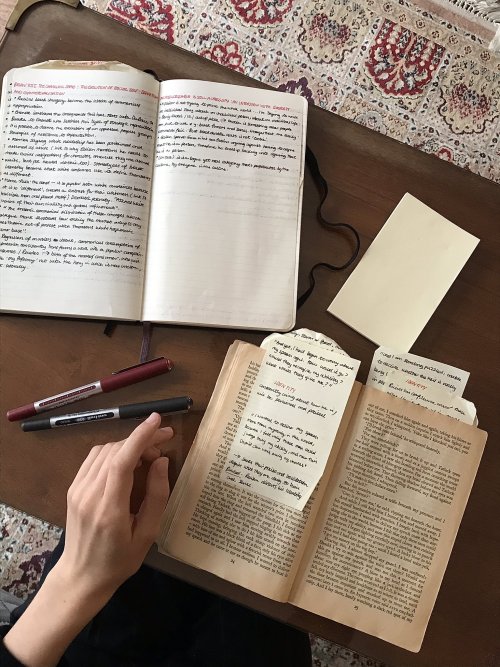
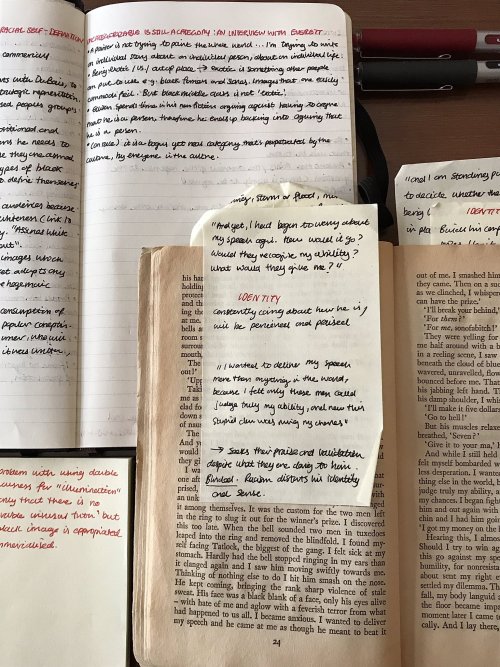
If this essay doesn’t kill me, nothing will. I’m currently grappling with the concept of connecting Du Bois’ concept of double consciousness with post-structuralism. I don’t know whether I’m being very clever or very stupid. (x)
-
 hermionegrangerislifegoals reblogged this · 3 years ago
hermionegrangerislifegoals reblogged this · 3 years ago -
 neuro-lab liked this · 4 years ago
neuro-lab liked this · 4 years ago -
 viyannah reblogged this · 5 years ago
viyannah reblogged this · 5 years ago -
 viyannah liked this · 5 years ago
viyannah liked this · 5 years ago -
 le-petitte-demon-horse liked this · 6 years ago
le-petitte-demon-horse liked this · 6 years ago -
 stormstudiess reblogged this · 6 years ago
stormstudiess reblogged this · 6 years ago -
 stormstudiess liked this · 6 years ago
stormstudiess liked this · 6 years ago -
 study-starlight reblogged this · 6 years ago
study-starlight reblogged this · 6 years ago -
 vibrantlied reblogged this · 6 years ago
vibrantlied reblogged this · 6 years ago -
 vibrantlied liked this · 6 years ago
vibrantlied liked this · 6 years ago -
 rinstudie reblogged this · 6 years ago
rinstudie reblogged this · 6 years ago -
 schattenwxlfin liked this · 6 years ago
schattenwxlfin liked this · 6 years ago -
 laurenlikesbrains reblogged this · 6 years ago
laurenlikesbrains reblogged this · 6 years ago -
 mitsukosan-blog reblogged this · 6 years ago
mitsukosan-blog reblogged this · 6 years ago -
 mitsukosan-blog liked this · 6 years ago
mitsukosan-blog liked this · 6 years ago -
 productivityrocks liked this · 6 years ago
productivityrocks liked this · 6 years ago -
 hislilbitloving liked this · 6 years ago
hislilbitloving liked this · 6 years ago -
 redheddebeauty liked this · 6 years ago
redheddebeauty liked this · 6 years ago -
 madamestarlight liked this · 6 years ago
madamestarlight liked this · 6 years ago -
 aretheymadefromrealgirlscouts liked this · 6 years ago
aretheymadefromrealgirlscouts liked this · 6 years ago -
 nenastudies reblogged this · 6 years ago
nenastudies reblogged this · 6 years ago -
 azideux liked this · 6 years ago
azideux liked this · 6 years ago -
 doctorwestcott reblogged this · 6 years ago
doctorwestcott reblogged this · 6 years ago -
 loobnknoob liked this · 6 years ago
loobnknoob liked this · 6 years ago -
 studying-withjulia-blog liked this · 6 years ago
studying-withjulia-blog liked this · 6 years ago -
 carolsalles88-blog liked this · 6 years ago
carolsalles88-blog liked this · 6 years ago -
 strawberrikissu liked this · 6 years ago
strawberrikissu liked this · 6 years ago -
 the-one-and-only-hobbit liked this · 6 years ago
the-one-and-only-hobbit liked this · 6 years ago -
 benkyoueveryday-blog liked this · 6 years ago
benkyoueveryday-blog liked this · 6 years ago -
 youcantskipchapters liked this · 6 years ago
youcantskipchapters liked this · 6 years ago -
 doctorwestcott reblogged this · 6 years ago
doctorwestcott reblogged this · 6 years ago -
 jujustudying reblogged this · 6 years ago
jujustudying reblogged this · 6 years ago -
 valleqs13-blog liked this · 6 years ago
valleqs13-blog liked this · 6 years ago -
 elvishstudies reblogged this · 6 years ago
elvishstudies reblogged this · 6 years ago -
 hmmmidkyou liked this · 6 years ago
hmmmidkyou liked this · 6 years ago -
 bored-spaghetti-blog liked this · 6 years ago
bored-spaghetti-blog liked this · 6 years ago -
 optimuize reblogged this · 6 years ago
optimuize reblogged this · 6 years ago -
 andreyka2884 liked this · 6 years ago
andreyka2884 liked this · 6 years ago -
 malhabla liked this · 6 years ago
malhabla liked this · 6 years ago
a study blog for collected references, advice, and inspiration
267 posts
